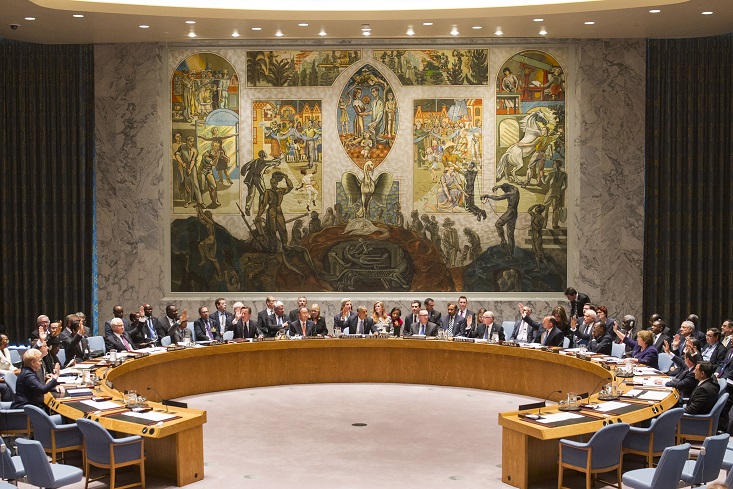 Print This Post
Print This Post- The Strategist - https://www.aspistrategist.org.au -
Australia and UNSC sanctions: another tool to disrupt foreign terrorist fighters
Posted By Lisa Sharland on October 29, 2014 @ 06:00
 Australia will rotate off the UN Security Council on 31 December 2014. As previously outlined here, there have been several high-profile political successes during our term, including leading the adoption of resolutions tackling illicit small arms and light weapons, authorising the delivery of humanitarian assistance in Syria, and calling for a full investigation into the downing of flight MH17. Australia has also been engaged in efforts to improve UN sanctions. But sanctions are not the type of high-profile work that garners much attention. That might explain why Prime Minister Abbott’s inaugural remarks to the UN Security Council and General Assembly last month made no reference to Australia’s work on sanctions. Still, it was a missed opportunity, particularly when sanctions will form part of international efforts to disrupt foreign terrorist fighters and could be an enduring legacy of Australia’s Security Council term.
Australia will rotate off the UN Security Council on 31 December 2014. As previously outlined here, there have been several high-profile political successes during our term, including leading the adoption of resolutions tackling illicit small arms and light weapons, authorising the delivery of humanitarian assistance in Syria, and calling for a full investigation into the downing of flight MH17. Australia has also been engaged in efforts to improve UN sanctions. But sanctions are not the type of high-profile work that garners much attention. That might explain why Prime Minister Abbott’s inaugural remarks to the UN Security Council and General Assembly last month made no reference to Australia’s work on sanctions. Still, it was a missed opportunity, particularly when sanctions will form part of international efforts to disrupt foreign terrorist fighters and could be an enduring legacy of Australia’s Security Council term.Article printed from The Strategist: https://www.aspistrategist.org.au
URL to article: https://www.aspistrategist.org.au/australia-and-unsc-sanctions-another-tool-to-disrupt-foreign-terrorist-fighters/
[1] Image: http://www.aspistrategist.org.au/wp-content/uploads/2014/10/UN-Resolution-2178.jpg
[2] here: http://www.aspistrategist.org.au/australias-term-on-the-un-security-council-an-intensive-final-quarter/
[3] sanctions: http://australia-unsc.gov.au/australia-and-the-unsc/subsidiary-bodies/
[4] Security Council: http://www.pm.gov.au/media/2014-09-24/address-un-security-council-summit-foreign-terrorist-fighters-new-york-0
[5] General Assembly: http://www.pm.gov.au/media/2014-09-25/address-united-nations-general-assembly-united-nations-new-york
[6] Resolution 2178: http://www.un.org/en/ga/search/view_doc.asp?symbol=S/RES/2178%20(2014)
[7] here: http://www.aspistrategist.org.au/united-nations-highlights-the-need-for-clear-approaches-to-radicalisation/
[8] reported: http://www.un.org/en/ga/search/view_doc.asp?symbol=S/2014/41
[9] listed 16 individuals and entities: http://www.un.org/News/Press/docs/2014/sc11575.doc.htm
[10] biggest action taken by the committee in over 10 years: https://twitter.com/AustraliaUN/status/514580763572850689
[11] invited: http://australia-unsc.gov.au/2013/12/briefing-on-peace-and-security-in-africa-the-situation-in-the-sahel/
[12] High Level Review: http://www.hlr-unsanctions.org/
[13] expected to present its preliminary findings: http://www.un.org/press/en/2014/sc11580.doc.htm
[14] have been identified: http://ministers.dfat.gov.au/mason/speeches/Pages/2014/bm_sp_141027.aspx
[15] United Nations: http://www.unmultimedia.org/s/photo/detail/603/0603113.html?app=1&lang=en